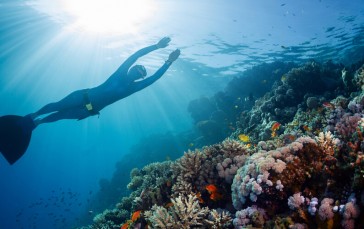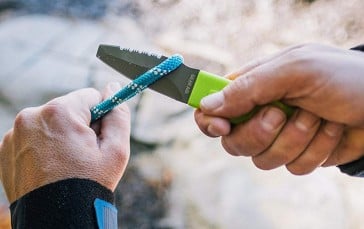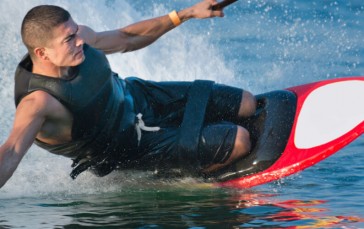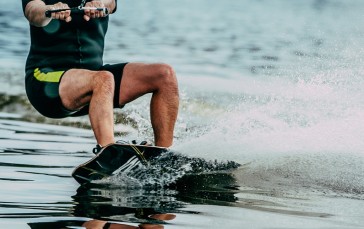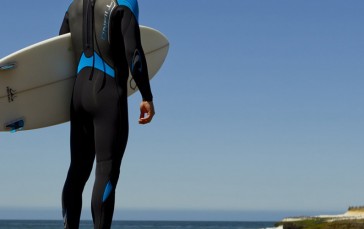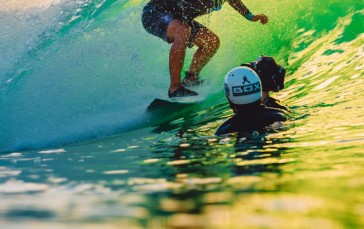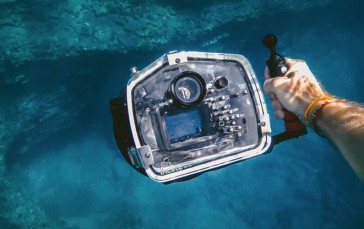Freediving For Beginners
Exploring the deep blue is the dream of many. The underwater world is almost mystical – a place where you can get in touch with your inner self, meditate, and get amazed at the surreal beauty of the underneath.
But if you’ve never dived before, learning the basics of freediving for beginners before venturing is a must. Here are a few tips to follow to make the most out of your freediving experience.
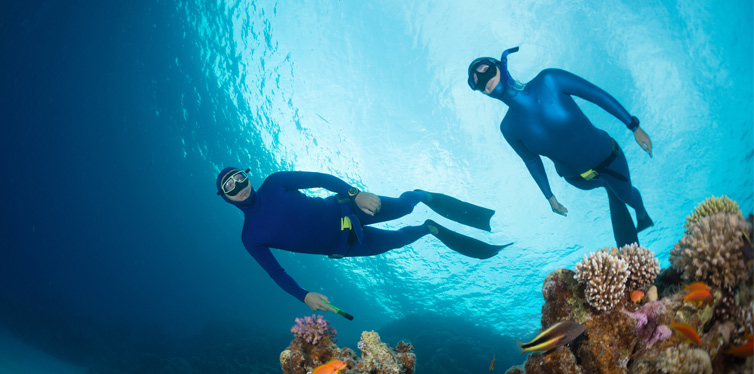
1. Take A Freediving Course
Snorkeling is often the precursor of free- or scuba diving. But even if you’re an excellent snorkeler and even if freediving is not as challenging as scuba diving, you must still learn how to dive properly before taking the plunge.
Don’t take the chance to venture into the blue without having attended at least a few freediving classes. Unlike snorkeling that happens in shallow waters, diving comes with new challenges.
You’ll have to learn how to handle water pressure and how to keep calm regardless of what sea creatures you meet.
If you have the chance, attending a class or two at Nemo 33 facility in Brussels, Belgium, would be a great starting point. Otherwise, enroll in a professional course with a certified PADI diver.
2. Invest In The Right Freediving Equipment
Once you’ve learned the basics, it’s time to drop some money and invest in the right freediving gear.
The most important piece of equipment is a diving mask that’ll help you see underwater. A snorkel is usually unnecessary, but you can still get one if it makes you feel more comfortable.
You should also get a wetsuit or drysuit designed for warm or cold waters, respectively.
Fins are also important, and if you don’t want to feel cold, you can also invest in diving gloves and water socks.
A freediving watch or a dive computer, such as the Garmin Descent, is another important piece of equipment to monitor the duration of your dive and depth.
Obviously, none of these are essential for freediving, but they can really enhance your experience.
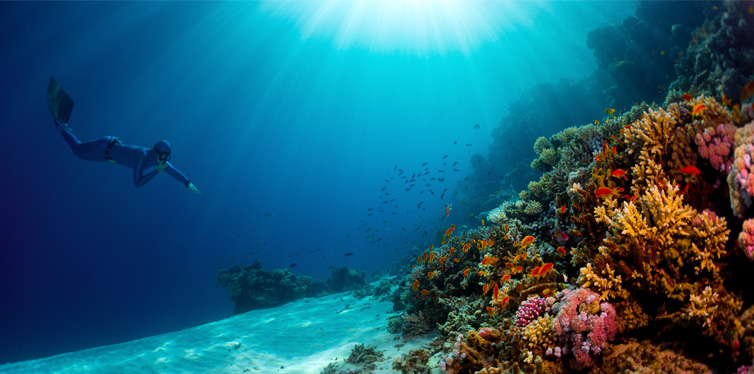
3. Never Dive Alone
The #1 rule you’ll learn during your freediving course and that you should always respect is that you must never dive alone. Neither as a beginner nor as an experienced diver.
There are many reasons for it. For instance, you could have muscle cramps that can prevent you from swimming. You could faint under the water. A sea creature could scare you. Having a buddy with you can make the whole experience less frightening and more fun, and a whole lot safer.
4. Relax
As mentioned above, there are a zillion things that can happen underwater. But it’ll all seem even scarier if you don’t relax.
Diving when you’re not calm also comes with risks, as you’ll most likely consume your oxygen reserves faster.
If you have an anxious nature, it may help to learn a few yoga or mindfulness meditation techniques before embarking on this adventure.
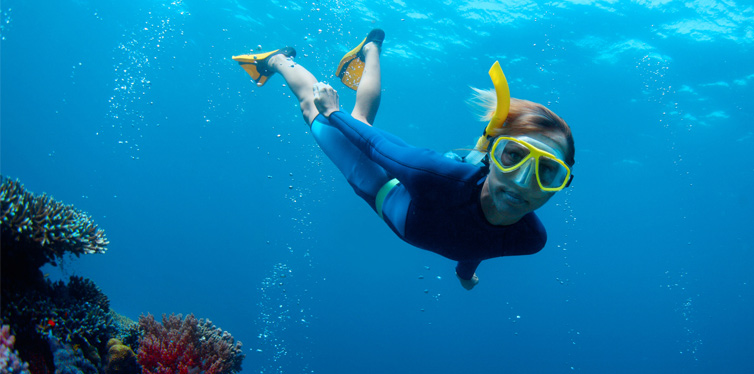
5. Don’t Touch Anything
The underwater world is as fascinating as it is scary. Especially if diving in tropical areas, you might be tempted to touch those colorful fish or beautiful corals. However, refrain from doing so.
Touching the sea creatures could harm them, and it could also hurt you, as some marine animals can bite or sting.
The best way to take with you some sweet memories is by investing in an underwater waterproof camera to snap that Insta-perfect shot.
6. Learn From Everyone You Can
A great trick to improving your freediving skills is to learn as much as you can from those who know more than you. Don’t limit yourself to asking questions exclusively during the class.
Watch other divers and have a chat with them whenever possible. You’ll quickly learn that different freedivers use different techniques to achieve their goals, and you can get inspired in finding your own freediving technique. The best you can do is to assimilate all their tips and limit as much as possible your attempts of online learning, as freediving isn’t something you can learn on the internet.
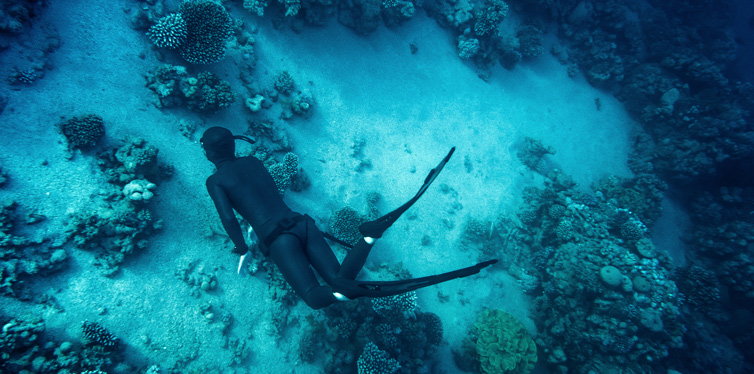
7. Visualize Your Dive
A good way to prepare yourself for your dive is to visualize the peaceful surroundings and happy things you’ll experience while you’re underwater. This technique helps relax your body and mind, lowers your heart rate, and helps control your breathing.
This technique can also work underwater if things get tensed. For instance, if you feel the anxiety rising, think of why you dived in the first place and visualize your goals.
Another trick is to focus on something that delivers serenity or happiness, such as a fun or positive event, or you could sign a merry song in your head.
8. Respect The Environment
One of the rules of freediving for beginners is to learn as much as you can about the marine environment before diving.
Due to climate change and pollution, our oceans are at risk. Corals are dying due to warmer waters and inadequate sunscreen use. Fish and other marine species also get extinct due to over-exploitation of the world’s waters.
As a diver, it is your job to protect the marine environment, so learn as much as you can about it, how to protect it, and how to respect it while diving.
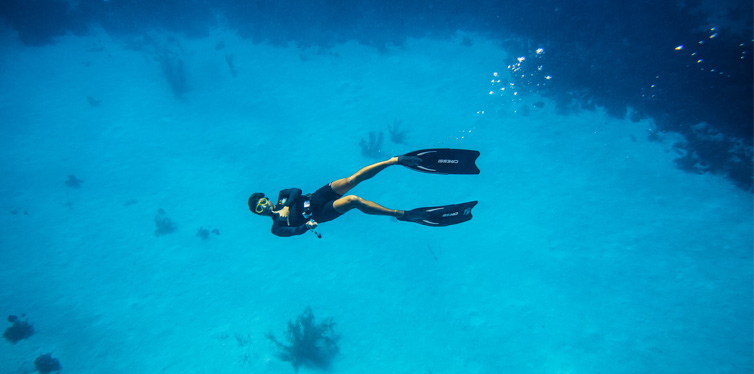
Wrapping It All Up
The last and most important tip to keep in mind is to have fun. Swimming underwater on one breath of air is priceless. You can enjoy the silence, peacefulness, and beauty of the underneath while clearing your mind from all negative thoughts.
Take underwater photos, join a school of fish, or swim with that dolphin pod. Live in the moment and enjoy this freedom you won’t have elsewhere. Have fun and be happy. After all, this is the essence of freediving.


